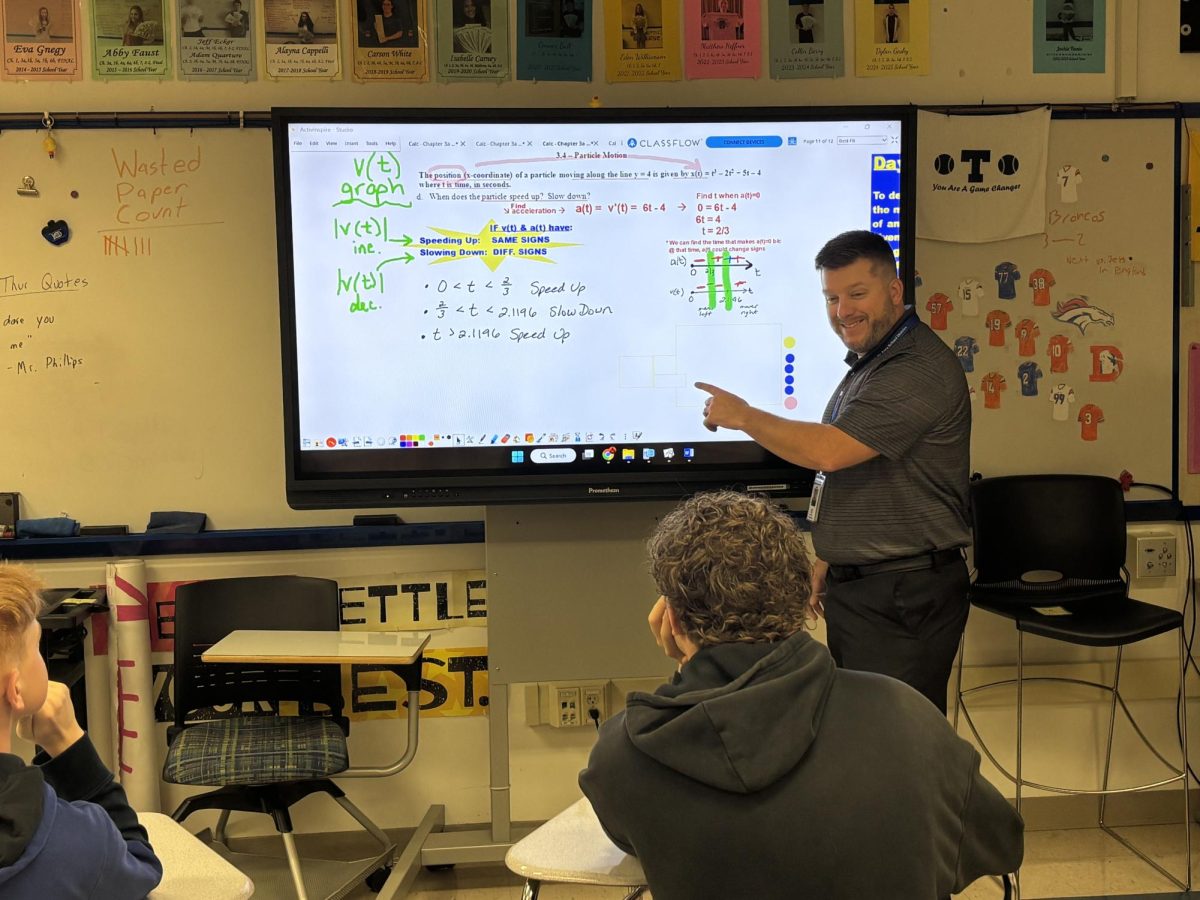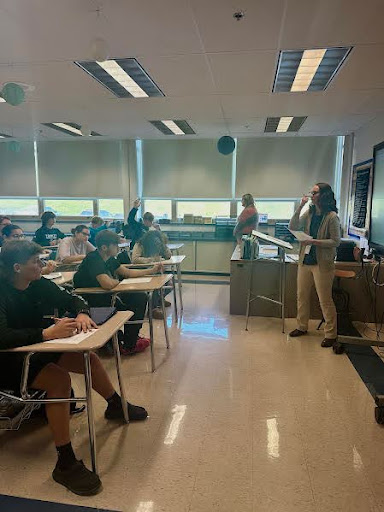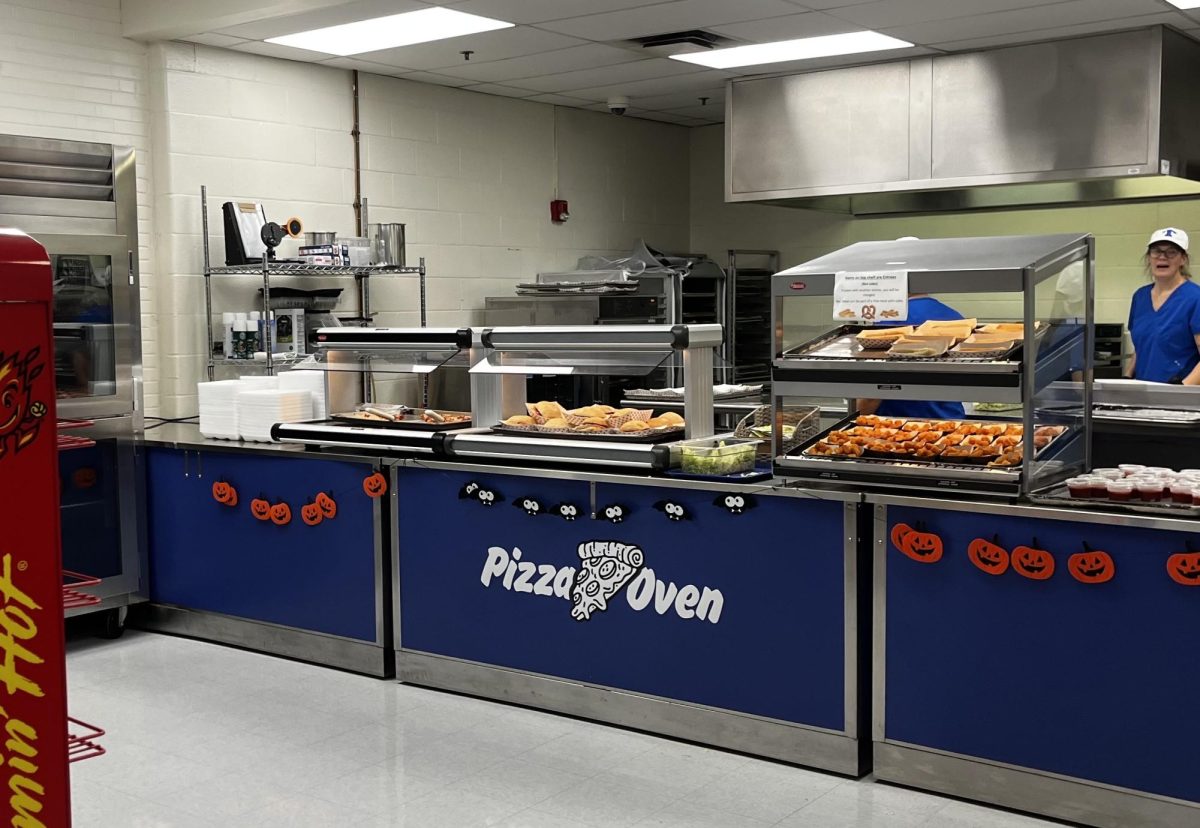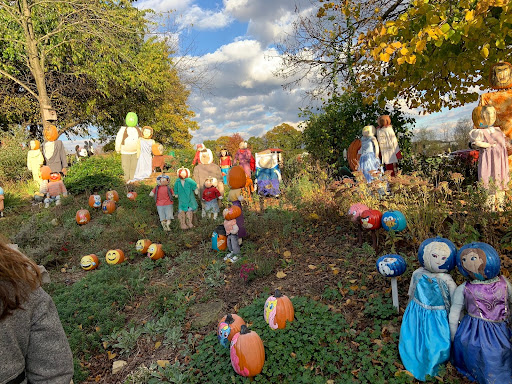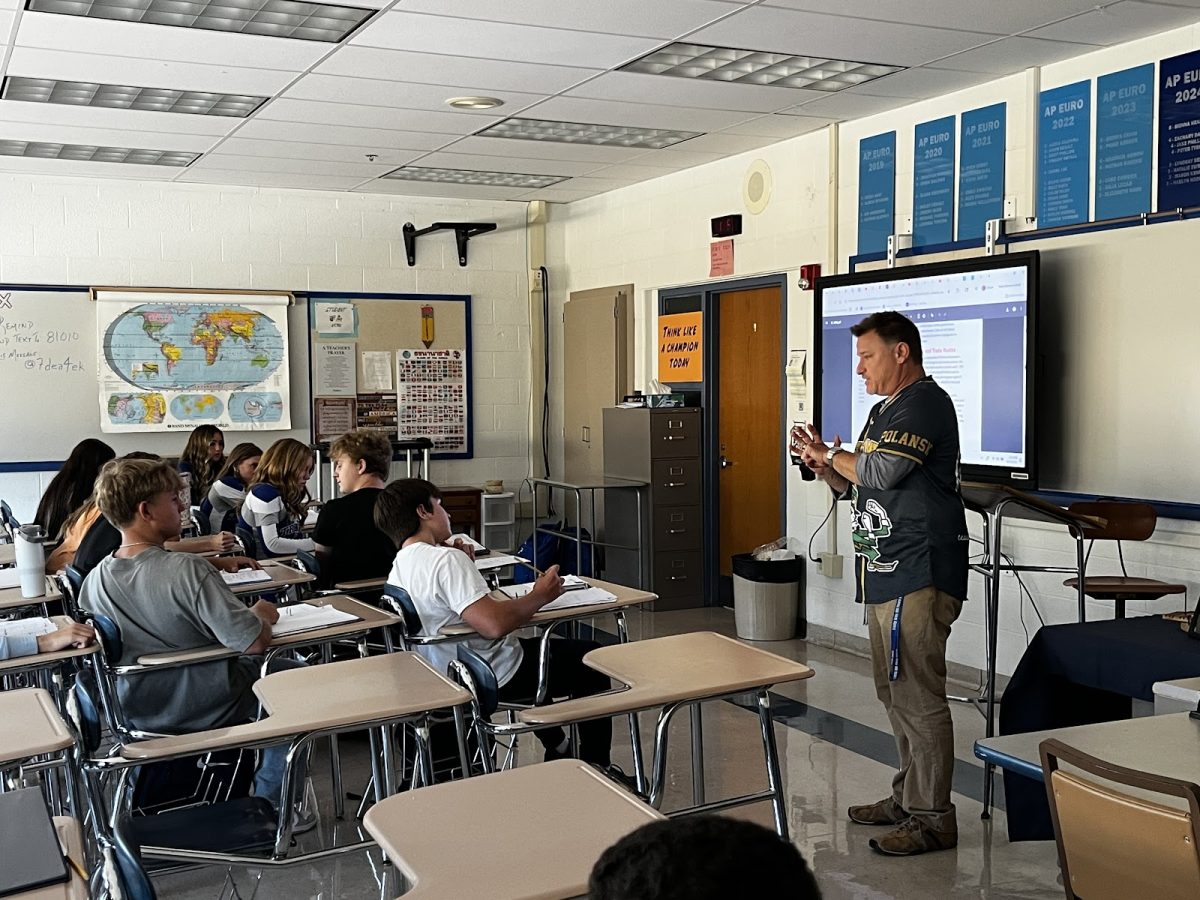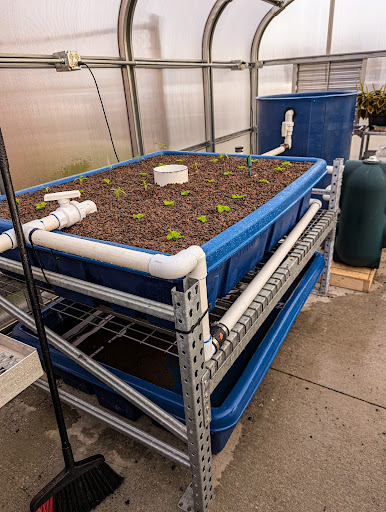
Students at Trinity High School have a multitude of options when scheduling their classes. Among these options are several career pathways, including the agricultural path, which requires students to complete nine classes and four supervised Agricultural Experience projects. Two courses in this pathway are new: Advanced Hydroponics and Greenhouse Production.
Mrs. Hartley, THS Gifted Case Manager and agriculture educator, commented, “These classes are relatively new additions. They are all project-based. Learning by doing is the best way to learn. I lecture two days a week, and we are downstairs or working in the greenhouse three days a week.”
Many of these classes are often updated and enhanced with new technology, sponsored by grants.
Students may have noticed one of the hydroponics growing systems located in the main lobby. These systems provide a variety of common gardening vegetables and herbs. Trinity has a total of two hydroponic growers, which were introduced to the agriculture classes last year.
These growers cultivate various vegetables and plants without the need for soil. Instead, they utilize a nutrient-rich water solution and UV lights as artificial sunlight, enabling greens to thrive in areas with little to no direct sunlight.
Tied in with the greenhouse and as part of the larger Trinity-managed freight farm, a completely new aquaponics system has also been implemented. Aquaponics is a food production system that combines aquaculture — raising aquatic animals such as fish, crayfish, snails, or prawns in tanks — with hydroponics — cultivating plants in water — where the nutrient-rich aquaculture water is piped from the aquaculture tank into the mix of pebbles that support the hydroponically grown plants, thereby eliminating the need for soil once again.
Everett Luzar is one of the few students to take these classes without being on an agricultural career path.
He stated, “I wanted to take [hydroponics] because I own a landscaping business and wanted a better understanding of the plants and landscape design I was doing on clients’ properties. I would just like to say, even if you’re not interested in taking this class, I would give it a try because it surprised me. I wasn’t 100 percent interested at first, but I came to enjoy this class, and it’s now one of my favorites.”
By growing and nurturing the fish, the fish release essential nutrients that the plants will need into the water, making it possible for the plants to grow sustainably. The aquatic animals can also be safely harvested and consumed.
Along with this aquaponics system, a new professional label maker has been acquired and the FarmBot CNC system is finally up and running. The label maker allows students to print professional-looking labels instead of writing on popsicle sticks or making labels from other objects. Although the FarmBot has been in the greenhouse longer than the aquaponics system, it was only recently activated. It uses programming to fully automate the farming and growing processes for specific plants in the greenhouse.
Taking these classes can be a fun way to break up the day and provide a refreshing change of scenery. This approach gives students a much-needed break from sitting at a desk, allowing them to engage in hands-on activities while learning important life skills.
These classes, along with many other enjoyable and useful options sometimes lost to the Trinity basement, aren’t just for students in a career pathway; anyone can and should check them out!

